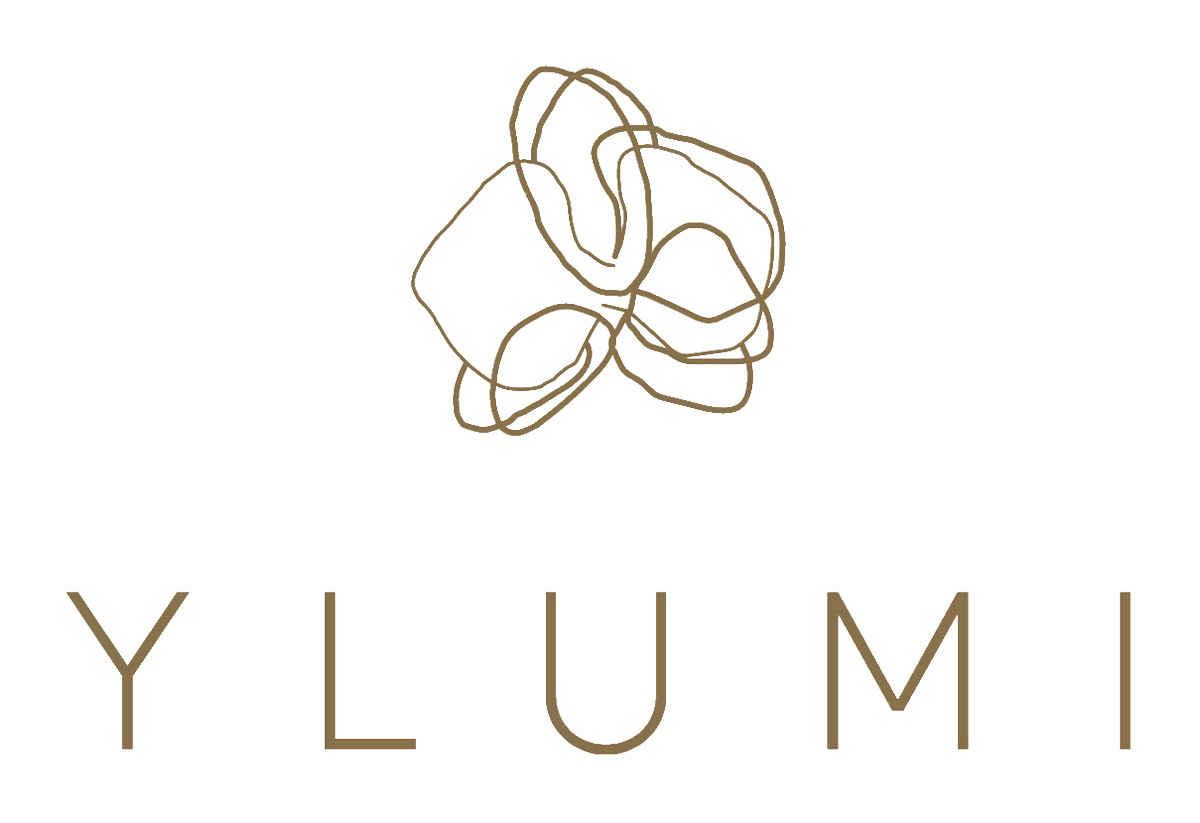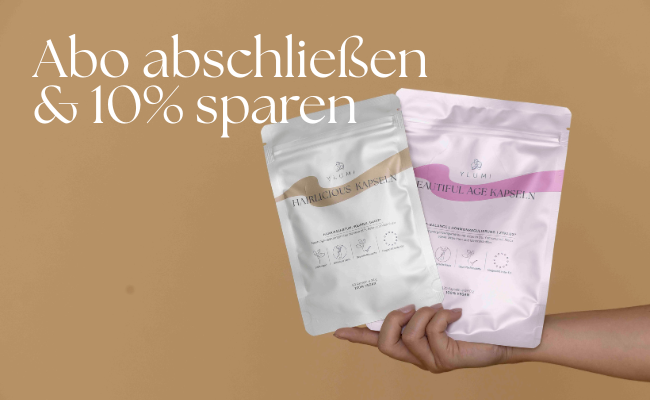
Are dietary supplements useful during pregnancy?
Hey, I'm Janine, a passionate midwife for 12 years and a freelance midwife in Berlin. My daily consultations, especially during early pregnancy, revolve around healthy nutrition and optimal nutritional supplements. I'm delighted that YLUMI now offers what I believe to be the perfect nutritional supplement for what are arguably the most exciting phases in a woman's life. In this blog post, I'll provide some basic information on this topic.
Are dietary supplements useful during pregnancy?
I have a very clear stance on this. I believe targeted supplementation, when tailored to the needs and requirements of the pregnant woman, is very valuable. While various professional associations advise against supplements during pregnancy—except for folic acid, iodine, and iron—and recommend only a balanced and healthy diet, various studies have shown a positive effect on both mother and child from taking supplements.
Nutrition during pregnancy can seem quite complicated. Pay attention to this, avoid that, eat omnivorous, maybe vegetarian, definitely not vegan. One thing up front: A healthy, balanced, and nutritious diet is, on the one hand, very individual and, on the other, much easier than you think. The most important thing is your enjoyment of food.
Depending on your diet and any pre-existing medical conditions, a few things need to be considered. For example, a purely vegan diet can lead to iron deficiency during pregnancy. A nutrient profile obtained through a blood test can provide clarity in this regard.
Basically, you have an increased energy requirement during pregnancy. You need an additional 300 to 500 kcal per day. You can certainly imagine that this increased requirement shouldn't be met with sweets or an extra portion of pasta. Since a little human is growing inside you, you need protein above all else – even more than carbohydrates. "Good" fats are also important, especially unsaturated and long-chain fatty acids.
It is definitely worth looking for suitable foods for your diet as early as possible and doing a little research.
In addition to a varied diet, certain micronutrients—vitamins, trace elements, and minerals—will also be beneficial for you and your baby. Most of these nutrients can be easily obtained through food, but for a few, taking targeted supplements may be worthwhile.
Which vital substances are worth taking supplements for during pregnancy?
In all the guides and recommendations, you'll definitely come across the following three micronutrients: folic acid, iron, and iodine. Your needs for all three are indeed significantly increased during pregnancy.
Folic acid
Folic acid and iodine are highly recommended even during the pregnancy period and should be taken in higher doses at least until the 12th week of pregnancy. Why? Folic acid (vitamin B9) is essential in early pregnancy for the development of the baby's organ systems, gastrointestinal tract, nervous system, and the entire cardiovascular system. This usually occurs before the pregnancy is confirmed by your midwife or gynecologist. Disorders caused by folic acid deficiency can lead to far-reaching complications. Therefore, taking folic acid is highly recommended even during the pregnancy period.
Folic acid is also important for pregnant women: it is needed for cell formation and growth and is therefore particularly important for the developing uterus and placenta, as well as for increased blood formation.
iodine
Iodine is an essential trace element needed primarily for the production of thyroid hormones, which in turn are involved in all regulatory processes, especially brain development. An iodine deficiency can also cause serious complications. Since most foods contain only small amounts of iodine, uncomplicated supplementation is particularly valuable here.
iron
The increased need for iron is probably familiar to most people. Your body produces a good 2 liters more blood by the end of pregnancy, and for this, it needs iron in particular to produce sufficient red blood cells. However, while the blood plasma increases significantly, the solid components of your blood—the blood cells—decrease somewhat. This results in a completely normal and physiological dilution effect, which is necessary for optimal blood flow between mother and child.
When a midwife or gynecologist confirms pregnancy, they usually also measure hemoglobin. This red blood cell filler provides information about the oxygen supply in your blood. A baseline test is therefore highly recommended. I also recommend a ferritin test, which gives us a direct indication of iron stores. This allows us to specifically determine how much additional iron is needed. A pregnant woman's iron requirements actually increase by 100%. Symptoms such as severe fatigue and exhaustion can directly indicate an iron deficiency or excess need. A large portion of iron can be easily absorbed through food—e.g., oatmeal, millet, chickpeas, whole-grain rice, whole-grain pasta, lamb's lettuce, tofu, meat, and much more.
However, additional intake of easily digestible iron is often necessary, especially in vegetarian or vegan diets.
Vitamin B6
Vitamin B6 is especially useful if you suffer from morning sickness and can also be very helpful with other accompanying symptoms such as fatigue. B vitamins are mainly found in dairy products, vegetables, eggs, and yeast—to name just a few examples.
Vitamin C
Vitamin C supports the immune system and improves iron absorption from food and supplements. Consuming citrus fruits is recommended in this regard.
Vitamin D
Vitamin D is particularly important for cell division, the immune system, and bone formation and can only be produced through sunlight. In Germany, this isn't possible even in summer, as most of us protect ourselves with sunscreen. While this is, of course, highly recommended, absorption of vitamin D through our skin is then virtually impossible.
By the way, all these vital substances are contained in the YLUMI FEM LOVE CAPSULES
Which dietary supplements are best avoided during pregnancy?
Be sure to avoid supplements that contain too many micronutrients or that exceed your actual needs. A lot doesn't help much! On the contrary, opt for targeted supplementation. Furthermore, your food should be free of harmful substances and hormones.
What makes a good pregnancy supplement?
A good dietary supplement is characterized by easy and individual dosing and high bioavailability. This refers to the absorption and processing of micronutrients in our bodies. The higher this bioavailability, the more beneficial it is for you, and the fewer capsules or tablets you need.
Pay attention to the accompanying ingredients: Ideally, it should be sugar-, lactose-, and gluten-free. Is your product free of harmful substances and hormones and of plant origin, making it vegan? Great, then it's just right. All of these things characterize the YLUMI FEM LOVE capsules. I think it's your ideal companion during pregnancy and breastfeeding.
Conclusion
When specifically and optimally tailored to your needs, dietary supplements can prevent or alleviate the side effects that occur during pregnancy, thus contributing to your vitality and well-being and supporting the healthy development of your child. With its FEM LOVE capsules, YLUMI has developed an ideal dietary supplement that can optimally support you during what is arguably the most sensitive phase of your life. I have long been familiar with the high quality of YLUMI dietary supplements, use them myself, and am delighted that this wonderful and valuable product is now also available for the period of trying to conceive, pregnancy, and breastfeeding.




